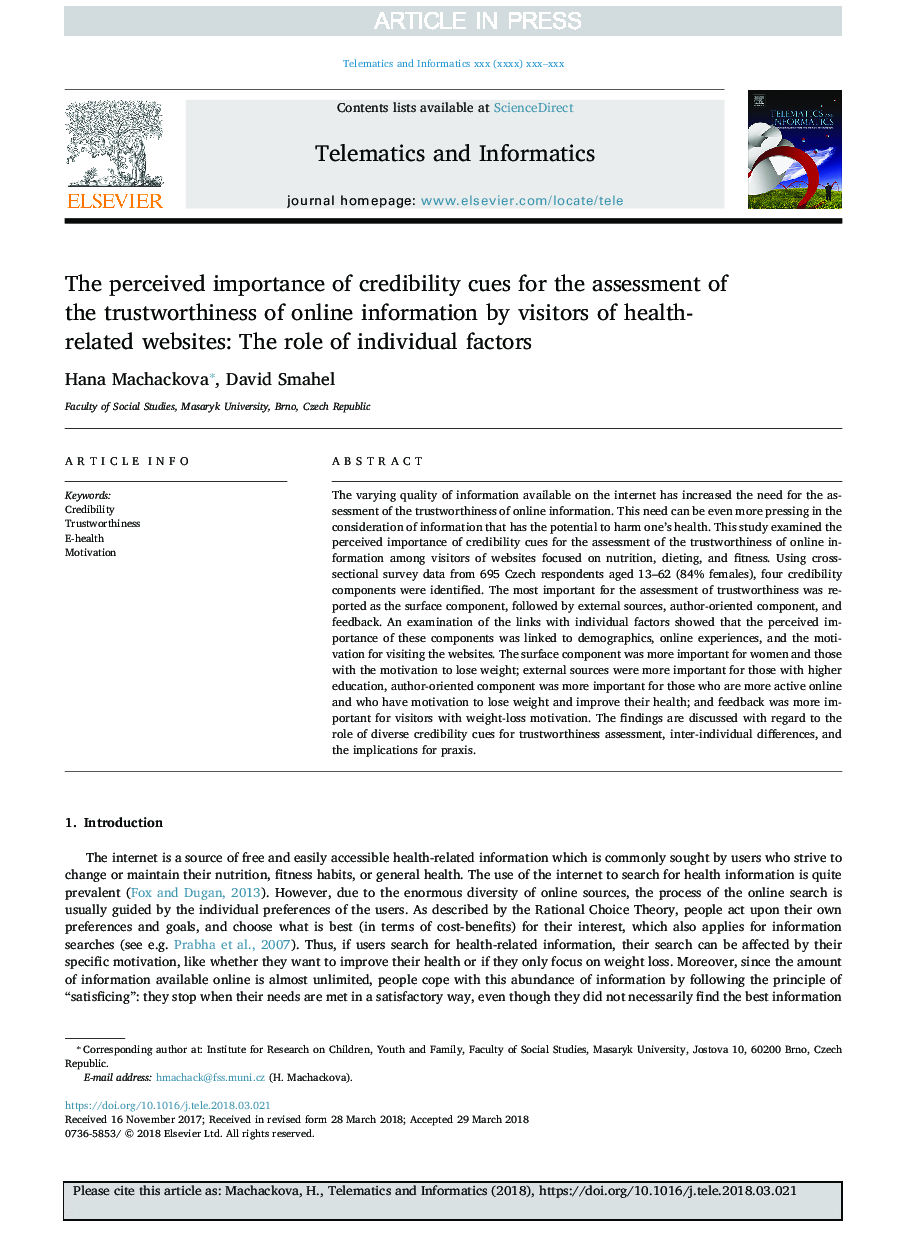| Article ID | Journal | Published Year | Pages | File Type |
|---|---|---|---|---|
| 6889584 | Telematics and Informatics | 2018 | 8 Pages |
Abstract
The varying quality of information available on the internet has increased the need for the assessment of the trustworthiness of online information. This need can be even more pressing in the consideration of information that has the potential to harm one's health. This study examined the perceived importance of credibility cues for the assessment of the trustworthiness of online information among visitors of websites focused on nutrition, dieting, and fitness. Using cross-sectional survey data from 695 Czech respondents aged 13-62 (84% females), four credibility components were identified. The most important for the assessment of trustworthiness was reported as the surface component, followed by external sources, author-oriented component, and feedback. An examination of the links with individual factors showed that the perceived importance of these components was linked to demographics, online experiences, and the motivation for visiting the websites. The surface component was more important for women and those with the motivation to lose weight; external sources were more important for those with higher education, author-oriented component was more important for those who are more active online and who have motivation to lose weight and improve their health; and feedback was more important for visitors with weight-loss motivation. The findings are discussed with regard to the role of diverse credibility cues for trustworthiness assessment, inter-individual differences, and the implications for praxis.
Related Topics
Physical Sciences and Engineering
Computer Science
Computer Networks and Communications
Authors
Hana Machackova, David Smahel,
